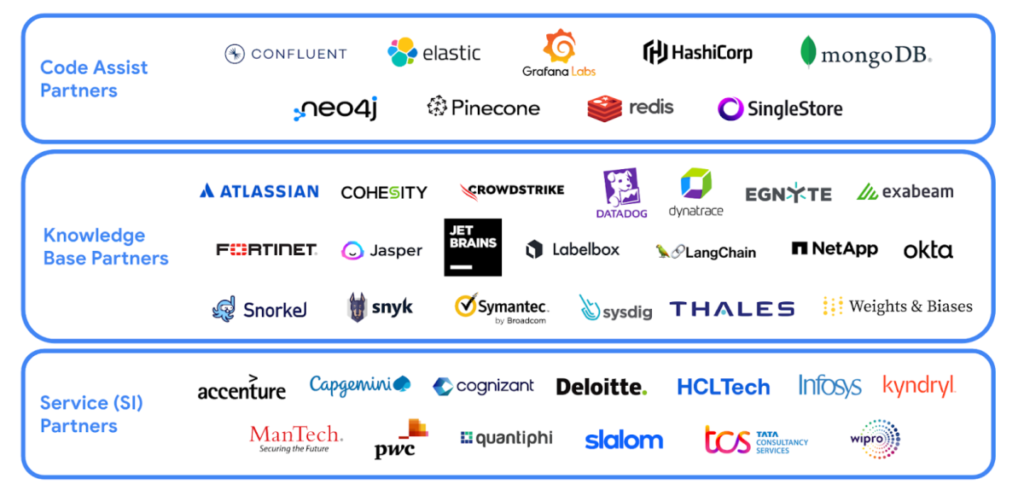
Google today announced that Duet AI for Developers, the suite of AI-powered assistance tools for code completion and generation the company announced earlier this year, is now generally available and that it will start making use of Google’s more powerful Gemini model in the coming weeks.
While code completion and generation tools have quickly become mainstream, with GitHub’s Copilot having the lead in terms of developer mindshare, Google is taking an interesting approach here by also partnering with 25 companies that have contributed datasets for their platforms to assist developers with building and troubleshooting their applications. Confluent, HashiCorp and MongoDB, for example, will provide data to train Duet AI for Developers to help developers with writing code for their platforms.

Image Credits: Google
While the data from those partners will mostly be useful in the code completion and generation experience, Datadog, JetBrains and Langchain will provide documentation and knowledge sources that will likely be most useful in the Duet AI for Developers chat experience. Using this data, the service will be able to provide development and ops teams with information about how to create test automation, resolve issues in production and remediate vulnerabilities, for example.
“I still pretend to be a developer and lead a team of engineers who do developer relations and all of our documentation,” explained Richard Seroter, the chief evangelist for Google Cloud, in a small press briefing ahead of today’s launch. “We get to see every day, there’s still plenty of toil, there’s still plenty of hard things about software. How can AI help get rid of that boilerplate, things that we don’t like to do? How do we make coding better? That’s been a lot of what we’ve been chasing with this. How do we build a sort of AI assistant that meets our developers in the tools they use, but also rub a little Google on it?”

Image Credits: Google
How do you rub a bit of Google on these tools? By ensuring that the model is trained on the latest cloud-native practices and by integrating it into the Google Cloud Console, for example, on top of all of the popular IDEs that developers use already.
Seroter stressed that Google looks at the entire family of Duet AI products, which Duet AI in Security Operations now also being generally available, as an enterprise-grade product, with enterprise access controls and Google’s indemnification guarantee giving enterprises the features they need to take these tools into production.
Google’s overall story around its AI coding tools is essentially the same as from every other vendor. Seroter pointed out, for example, that code completion in the IDEs developers are already familiar with helps developers stay in their flow. Just like most other vendors, Google also doesn’t believe that these tools will replace coding skills but that they will help make developers more productive. GitHub and others have shared data on the productivity gains they are sharing and I expect we’ll see more data from Google about that soon. For now, the company only said that Turing, an ‘AI-powered tech services company,” saw a 33% productivity gain after adopting Duet AI for Developers.
Duet AI for Developers currently supports over 20 languages, including C, C++, Java, JavaScript and Python. On top of the usual coding capabilities, it also includes support for AI log summarization and error explanation integrated with Google’s Cloud Logging, for example, as well as Smart Actions, which Google describes as one-click shortcuts to perform tasks like unit test generation.
Until the end of January 2024, Duet AI for Developers will be available for free. After that, it will cost $19 per user per month with an annual commitment.